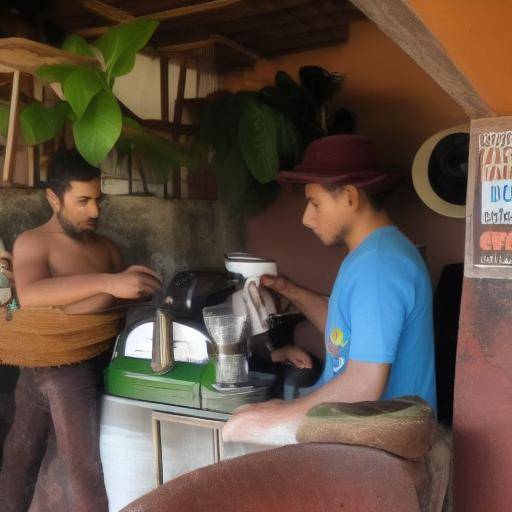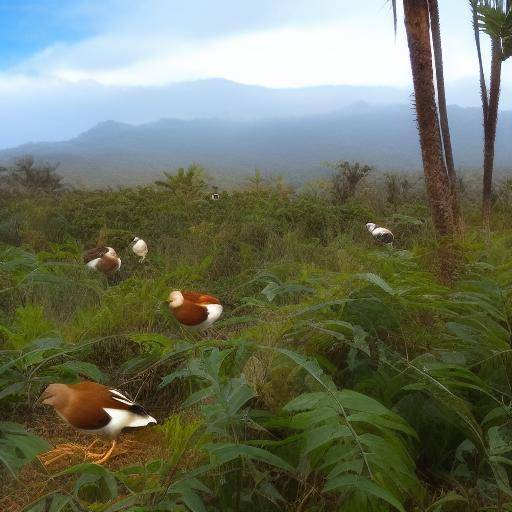
Colombian coffee is recognized all over the world for its distinctive quality and flavor, but learning in coffee farms goes far beyond a simple cup of coffee. In this article, we will explore agricultural education and educational tourism in Colombia, focusing on the unique experience offered by coffee farms.
Introduction
Colombian Coffee: Aromas that CautivanColombia is a country famous for its lush landscapes, rich culture and, of course, its delicious coffee. The Colombian coffee stands out for its soft taste, fruity notes and balanced acidity, making it one of the favorite among coffee lovers around the world. However, beyond being a drink, Colombian coffee represents a tradition rooted in the history and daily lives of Colombians.
In this article, we will explore the world of Colombian coffee from a unique perspective: learning on coffee farms on the coffee route. We will discover how agricultural education and educational tourism intertwine to offer visitors an enriching and revealing experience, plunging them into the fascinating world of coffee cultivation and production.
History and Background
The Origin and Evolution of the Colombian CoffeeCoffee arrived in Colombia in the 18th century, and has since played a fundamental role in the country's economy and culture. Over the years, Colombia has established itself as one of the world's leading coffee producers, gaining renown for the quality of its grains and the passion of its producers.
The cultivation of coffee in Colombia has gone through various stages of development, from the beginning of plantations to modern sustainable cultivation techniques. The history of Colombian coffee is marked by key figures, such as Juan Valdez, who became an iconic symbol of the Colombian coffee industry, bringing with it the image of the working and passionate caficultor.
Deep analysis
Benefits and Challenges of Agricultural EducationAgricultural education plays a crucial role in the sustainable development of the coffee industry. It not only provides producers with the necessary tools and knowledge to improve the quality and productivity of their crops, but also promotes responsible agricultural practices that protect the environment and support local communities.
However, agricultural education also faces challenges, such as the need to adapt to climate change and the impact of market fluctuations. It is essential that agricultural education programmes be aligned with the real needs of producers, providing them with practical and up-to-date solutions to meet current and future challenges.
Trends and Opportunities in Educational TourismEducational tourism focused on Colombian coffee has experienced an unprecedented boom in recent years. Travelers are looking for authentic experiences that allow them to enter local culture and understand closely the production process of one of the most appreciated coffees in the world. The coffee farms offer the opportunity to participate in practical activities, from harvesting grains to coffee tasting, providing a complete immersion in the world of Colombian coffee.
Diversification of tourism experiences, such as the introduction of training programmes and interactive workshops, has expanded the provision of educational tourism in coffee farms. This creates opportunities for cultural exchange and mutual enrichment among visitors and local communities, promoting sustainable and responsible tourism.
Comprehensive review
Successful practices in the Fincas CafeterasThe coffee farms on the coffee route have been highlighted by implementing innovative practices that improve the quality of coffee and promote sustainable agricultural practices. Through the adoption of organic farming techniques, the preservation of natural ecosystems and the support of local communities, these farms exemplify the commitment to sustainability and social responsibility.
Comparison of Crop MethodsWe compare traditional farming methods with modern agricultural practices, exploring the benefits and challenges of each approach. We consider aspects such as production efficiency, environmental impact and resulting coffee quality, providing an integral view of the different strategies used in coffee farms.
Practical Tips and Accessible Recommendations
Discovering the Colombian Café: Tips for the OfficialsFor those who want to deepen the Colombian coffee universe, we offer practical advice to recognize and appreciate the distinctive features of the different types of coffee produced in Colombia. From the choice of preparation methods to the appreciation of taste nuances, these tips will serve as a guide for coffee lovers in their search to discover new sensory experiences.
Planning an Educational Tourism ExperienceInterested in exploring coffee farms on the coffee route? We provide detailed recommendations for planning and enjoying an exceptional educational tourism experience. From the selection of farms suitable to visit to the participation in enriching activities, these suggestions guarantee a complete immersion in the world of Colombian coffee.
Industry ideas and Expert Reviews
The Future of Colombian Coffee: Perspectives of ExpertsWe approach outstanding experts in the coffee industry to get their visions about the course that Colombian coffee will take in the coming years. Its views and insights provide a privileged view of emerging trends, challenges to confront and opportunities that are visible on the horizon of the coffee industry in Colombia.
Case Studies and Real Life Applications
Lessons extracted from Fincas Emblematic Coffee makersThrough detailed case studies, we explore the experiences of coffee farms that have been highlighted for their commitment to excellence and innovation. These exemplary experiences offer valuable lessons on how to draw a successful path in the coffee industry, adopting good practices and generating a positive impact on their communities.
Future Trends and Predictions
Promotion and Development Perspectives in the Coffee IndustryBrowse the emerging trends that could transform the coffee industry landscape in the coming years, from technological advances to changes in consumption preferences worldwide. Through rigorous analysis, we outline possible future scenarios and factors that will shape the future of Colombian coffee.
Conclusions and FAQs
ConclusionLearning on coffee farms on the coffee route in Colombia represents a unique opportunity to discover the richness and complexity of Colombian coffee, from its cultivation to its tasting. By immersed in this captivating world, visitors not only acquire practical knowledge, but also connect with a tradition rooted in the identity of Colombia.
Frequently asked questions
- What is the history of coffee in Colombia and its impact on the country's economy?
- How is agricultural education related to sustainable coffee production in Colombia?
- What are the different aspects of educational tourism in coffee farms on the coffee route?
- What are the main challenges facing the coffee industry in Colombia today?
- How can you identify and appreciate the quality of Colombian coffee in a tasting?
- What are the future prospects for coffee route elafeteras in Colombia in terms of sustainability and development?
Colombian coffee is much more than a drink; it is a symbol of the identity and passion of a country. Through learning in coffee farms, visitors have the opportunity to immerse themselves in the history, culture and science that surrounds Colombian coffee, creating a meaningful connection with this appreciated tradition. Agricultural education and educational tourism are intertwined to offer an enriching experience that lasts long after the last cup of coffee.
In short, Colombian coffee continues to inspire people from around the world, both through its unmistakable taste and through the lessons it offers on coffee farms. In exploring these multidisciplinary dimensions, visitors can not only enjoy exceptional coffee, but also fully understand and appreciate the soul and complexity behind every grain of coffee grown in Colombia.

